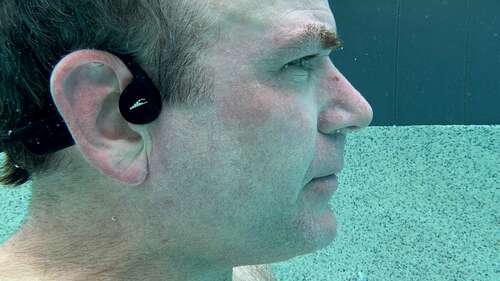
ZDNET’s key takeaways
- The H2O Audio Tri Pro multi-sport bone conduction headphones are available now for $179.
- Offline music support for subscription services is provided, the in-water audio sounds fantastic, and the headset has a high quality build.
- At $179, the headset is not the cheapest pair on the market, and the battery life is limited to roughly four to five hours.
Bone conduction headphones are my default accessory whenever I’m running and cycling due to the ability to stay aware of my surroundings. I have also tried bone conduction headphones while swimming, but for that activity, music must often be downloaded to the headset for offline listening, presenting a hurdle for most people. Does anyone still download music locally?
Also: The best bone conduction headphones
Fortunately, I have a fairly significant collection of MP3 files that I can store on watches and headsets that do not support music subscription services, so this isn’t the biggest problem.
So when the folks from H2O Audio reached out to me about testing a new bone conduction headset that would allow me to enjoy subscription-based music offline (while being underwater), I thought it was some kind of a joke or misunderstanding. However, after two weeks of running, swimming, and biking with the H2O Audio Tri Pro, they are now the perfect bone conduction headset for my needs and, possibly, for yours too.
Bluetooth headphones will work while swimming, but the experience is often suboptimal because Bluetooth does not travel well through water (a separation distance of just a few inches is enough to disconnect things) and the connection between the headset and a watch or phone is just as limited. However, offline music playback on the H2O Audio Tri Pro has been flawless, and the music actually sounds better in the water than it does while running or biking. I’ve been blessed with the opportunity to swim daily while spending time with my daughter in Australia, and the Tri Pro has made my exercise regime much more enjoyable.
The method to the madness is a feature called Playlist Plus, which records the audio from third-party streaming services like Spotify for local playback, and this is the first headset I have tested with such capability. In addition to swimming, using this technology to get offline music on the headset is also useful when you don’t want to run with your phone or impact the battery life of your phone or watch for music playback.
With Playlist Plus enabled, the headset will load content that you play on your smartphone into an offline folder on the headset with 8GB of space available. You can turn on the Playlist Plus capture via button presses on the headset or via the H2O Audio smartphone app.
My preferred way to get my Spotify playlists over to the headset is to use the smartphone app and then have the headset connected to the charger for recording. Make sure to set the volume high enough while loading music so you can enjoy it at the volume you like when you play it back later. Note that it takes the same amount of time that music is playing to load it up on the headset. So an hour-long playlist will take an hour to upload.
Also: Casio made a mud-resistant, mustard-colored GPS sports watch that I’d actually use
You can also connect the headset via USB and load MP3 files onto it if you have a collection of files available. The smartphone app supports loading MP3 files to the headset, too.
The H2O Audio Tri Pro headset weighs about 33 grams and has remained securely in place through my runs, swimming, and biking. It certainly helps that they’re rated at IPX8 for a water-resistant experience down to 12 feet of depth. Can you go diving with these on? I wouldn’t recommend it. But anything more mild like swimming in a pool is perfectly fine.
The audio performance while underwater is noticeably louder than when I’m running or biking, and that’s okay. I actually prefer being able to hear more of my surroundings when I’m exercising outdoors. There are three small buttons on one side of the headset to manage playback volume controls, and audio modes, so while some muscle memory is required for quick navigation, you’ll pick things up after a few uses.
Also: These bone-conduction headphones are ‘swim-ready’. I put them to the test
H2O advertises up to five hours of playtime, and in my experience, this is fairly accurate. I used a Bluetooth 5.3 connection to my phone and smartwatch for running and experienced about 20-22% battery consumption for each hour of running.
ZDNET’s buying advice
The H2O Audio Tri Pro bone conduction headset is fairly priced at $179, but if you want a headset for swimming with support for music streaming services, this may just be the only option available. Phone calls are a bit limited with the level of waterproof support, but playback in the water is fantastic.

